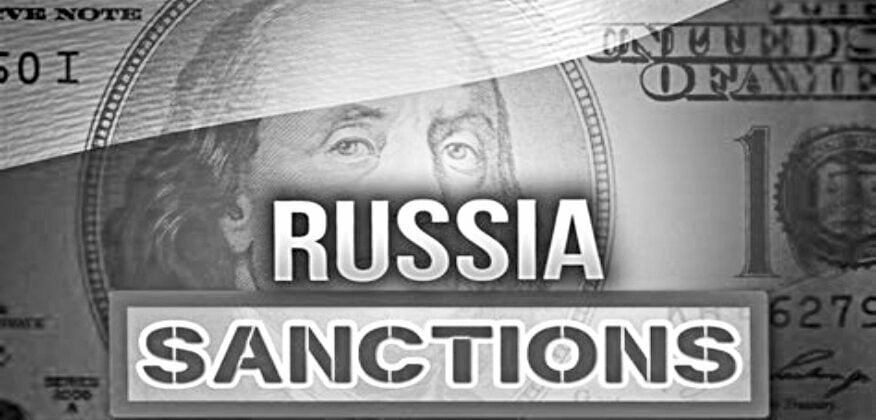The U.S. and its allies have been using financial strength in the form of economic sanctions against Russia since the beginning of the war with Ukraine. The million-dollar or billion-dollar question is, are they working?
To determine outcomes, you must have objective measures or goals in place that sanctions can be compared to, i.e., seizing assets of the top 100 Russian oligarchs. The U.S. economic sanctions against Russia are a set of measures that aim to punish Russia for its invasion of Ukraine and other harmful foreign activities. Some of the sanctions include:
- Banning new investment in Russia and prohibiting Russia from making debt payments with funds subject to U.S. jurisdiction.
- Imposing severe financial sanctions on Russia’s largest bank, several of its most critical state-owned enterprises, and Russian government officials and their family members.
- Isolating Russia from the global financial system, reducing the profitability of its energy sector, and blunting its military edge.
- Targeting 278 members of Russia’s parliament, 14 people connected with its defense industries, and organizations outside Russia that support its military or its annexation of Ukrainian territory.
The Russian economy is centered on its output and production of oil and gas. You can see from the following graphic that Russian GDP is highly correlated to the price of oil per barrel. As it goes, so goes the Russian economy. The latest round of sanctions by the U.S. and other western nations regarding oil and gas include the following:
- The European Union will ban imports of Russian oil brought in by sea from December 2022
- The EU will ban all imports of refined oil products from Russia in February 2023
- The US is banning all Russian oil and gas imports
- The UK will phase out Russian oil by the end of 2022. It no longer imports Russian gas
- Germany has frozen plans for the opening of the Nordstream 2 gas pipeline from Russia
- The EU has stopped importing Russian coal

The sanctions are intended to make a difference by imposing significant costs on Russia’s economy and security. However, some experts argue that the sanctions are insufficient to deter Russia from further aggression or change its behavior. War has a cost, and it must be financed. We see this currently in America, with the U.S. primarily financing the Ukrainian effort against Russia.
What about doing business in Russia? Have American and other multinational companies continued to do business there, or have they begun to taper their involvement? According to the Wall Street Journal, the jury is still out on this. Well, if not out, at least not sure.
Two academic groups have come up with two opposing theories. Yale and its Chief Executive Leadership Institute say they have. Its latest figures are that as of this week, “over 1,000 companies have curtailed operations in Russia,” in what it has called an “exodus.” However, the International Institute for Management Development at the University of St. Gallen in Switzerland states that less than nine percent of Western firms have divested from Russia.
This is a real soul-searching issue for multinational CEOs, as it pits profits against support for Ukraine. The wokeness that has infiltrated corporate boardrooms should make shareholders nervous. Profits only partially drive them currently, with more and more pressure from left-wing fringe groups making it increasingly likely that the Harvard group may be on point.
Let’s take a look at a couple of the high-level goals of the Biden administration regarding sanctions.
- To deter Russia from further invading Ukraine or other countries.
- To change Russia’s behavior and make it more cooperative with the international community.
- To weaken Russia’s economy and security over time.
Broad-based, but nevertheless, they can be objectively measured. As we’ve mentioned, experts disagree on the extent of success; however, according to the Biden folks, the sanctions are working to a large extent, but they have not achieved all of these goals yet. For example:
- The sanctions have imposed significant costs on Russia’s economy and security but have not caused a complete collapse or a major political change.
- The sanctions have reduced Russia’s access to key imports and technologies, but Russia has adapted by finding alternative sources or developing its own capabilities.
- The sanctions have increased the pressure on Russia to negotiate with Ukraine and other stakeholders. Still, Russia has not shown any signs of backing down or compromising on its core interests.
Therefore, the sanctions may need more time, coordination, and leverage to achieve their desired outcomes. However, risks and challenges are also involved in escalating or maintaining the sanctions regime. For instance:
- The sanctions may provoke a more aggressive response from Russia or trigger an additional military conflict.
- The sanctions may harm U.S. and European interests by affecting their trade relations with Russia or their energy security.
- The sanctions may lose their effectiveness if other countries do not support them or if loopholes or evasion tactics circumvent them.
These factors make it difficult to assess whether the sanctions against Russia are working or not. Ultimately, it depends on how one defines success and failure.











